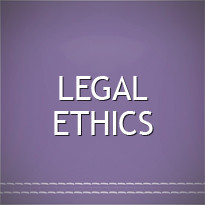In November 2013, several individuals went to the law office of Atty. Jonathan Tambol bringing with them affidavits for notarization. In the affidavits for notarization, there appeared to be nine affiants but only seven affiants appeared in person before Atty. Tambol. Atty. Tambol then told the present affiants that he will notarize the affidavits despite the absence of the two affiants provided that the two absent affiants (Roland Guibong and Alberto Factora) shall submit copies of their identification cards. This was complied with hence the affidavits were notarized.
The affidavits were complaints against Atty. Rene Baysa. Later, Atty. Baysa filed a disbarment case against Atty. Tambol for notarizing documents despite the non-appearance of the affiants.
ISSUE: Whether or not Atty. Tambol violated the 2004 Rules on Notarial Practice.
HELD: Yes. Atty. Tambol tried to justify his act by claiming that Guibong and Factora submitted valid identification cards together with their affidavits. According to Atty. Tambol, this proved that they intended their affidavits to be notarized by him even in their absence. The Court disagrees. The prohibition is clear. A notary public cannot perform a notarial act without the two requisites: (1) personal presence of the signatory to the instrument or document; and (2) the signatory is personally known to the notary public or otherwise identified through competent evidence of identity. Guibong and Factora’s mere submission of valid identification cards to Atty. Tambol as competent evidence of identity is not enough. Both should have been personally present before Atty. Tambol to have their affidavits notarized.
Time and again, the Court has stressed that a notary public should not notarize a document unless the person who signed the same is the very same person who executed and personally appeared before him to attest to the contents and the truth of the statements therein. Without the appearance of the person who actually executed the document in question, the notary public would be unable to verify the genuineness of the signature of the acknowledging party and to ascertain that the document is the party’s free act or deed.
The notarization of a document is not an empty act or routine. It is invested with substantive public interest, such that only those who are qualified or authorized may act as notaries public. Notarization converts a private documnent into a public document thus making that document admissible in evidence without further proof of its authenticity. A. notarial document is by law entitled to full faith and credit upon its face. Courts, administrative agencies and the public at large must be able to rely upon the acknowledgment executed by a notary public and appended to a private instrument.
Atty. Tambol is reprimanded and was issued a stern warning. His notarial commission was revoked and was disqualified to apply for a notarial commission for two years.



2 thoughts on “Atty. Rene Baysa vs Atty. Jonathan Tambol”
Where did you find this case? The link you give is no longer valid; I cannot find the case anywhere.
So, lawyers take revenge when a case is brought against them. Huh, who’da thunk it? I have a case pending in which the respondents somehow convinced the two investigators to lie about my absence from the mandatory conference, saying that my absence was “unexplained”. Problem is, on the date of the conference Phlpost tracking showed that their notice of the mandatory conference was “in transit”. What lawyer doesn’t know that the only lie they can get away with is one that cannot be detected? Lying to the Supreme Court has to be especially bad judgement.
Jon in Puerto Princesa
The SC web admin may have moved the file somewhere. We’ll just have to wait for them to put the full text back online. Here’s the SC’s repository of their full texts: https://elibrary.judiciary.gov.ph/